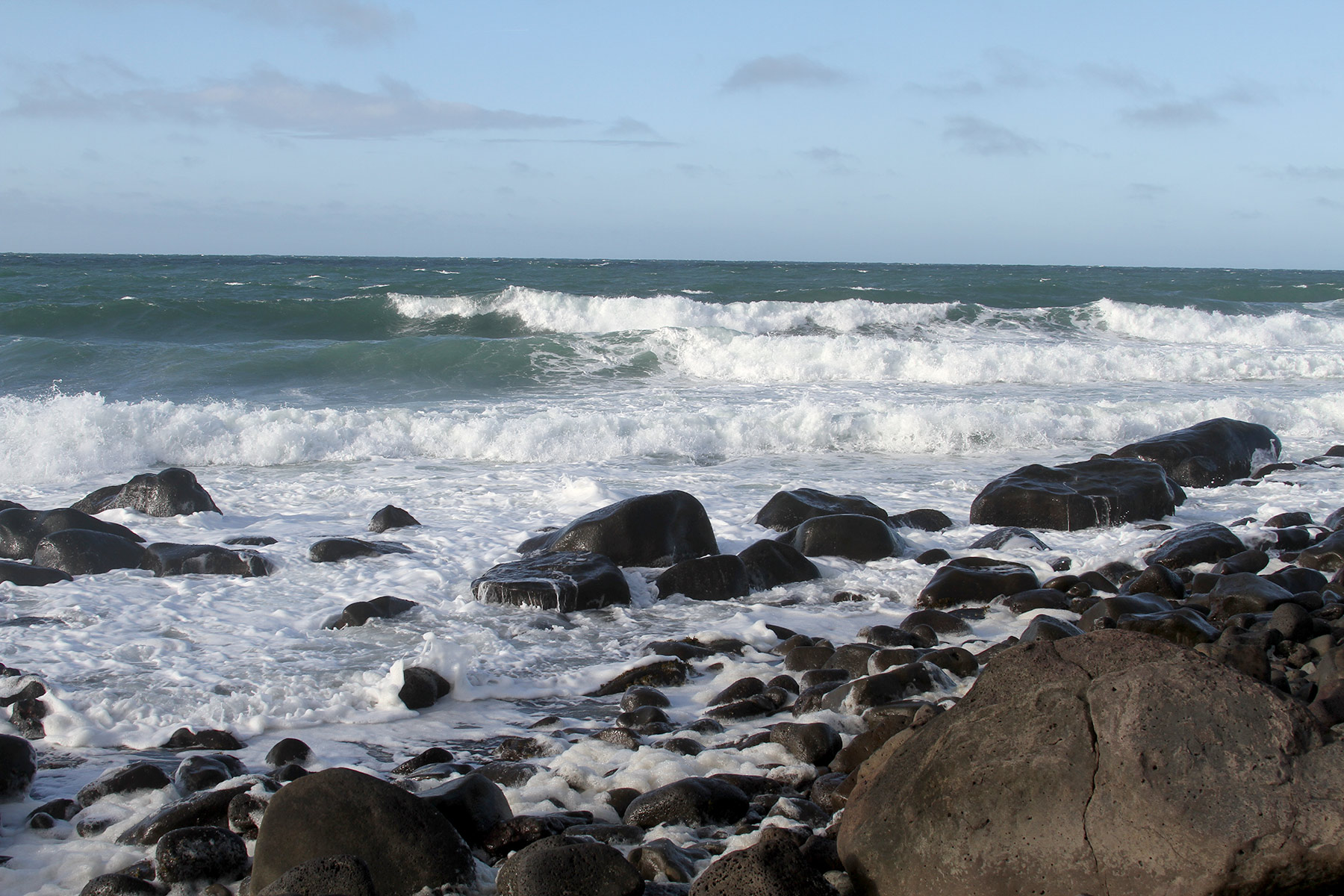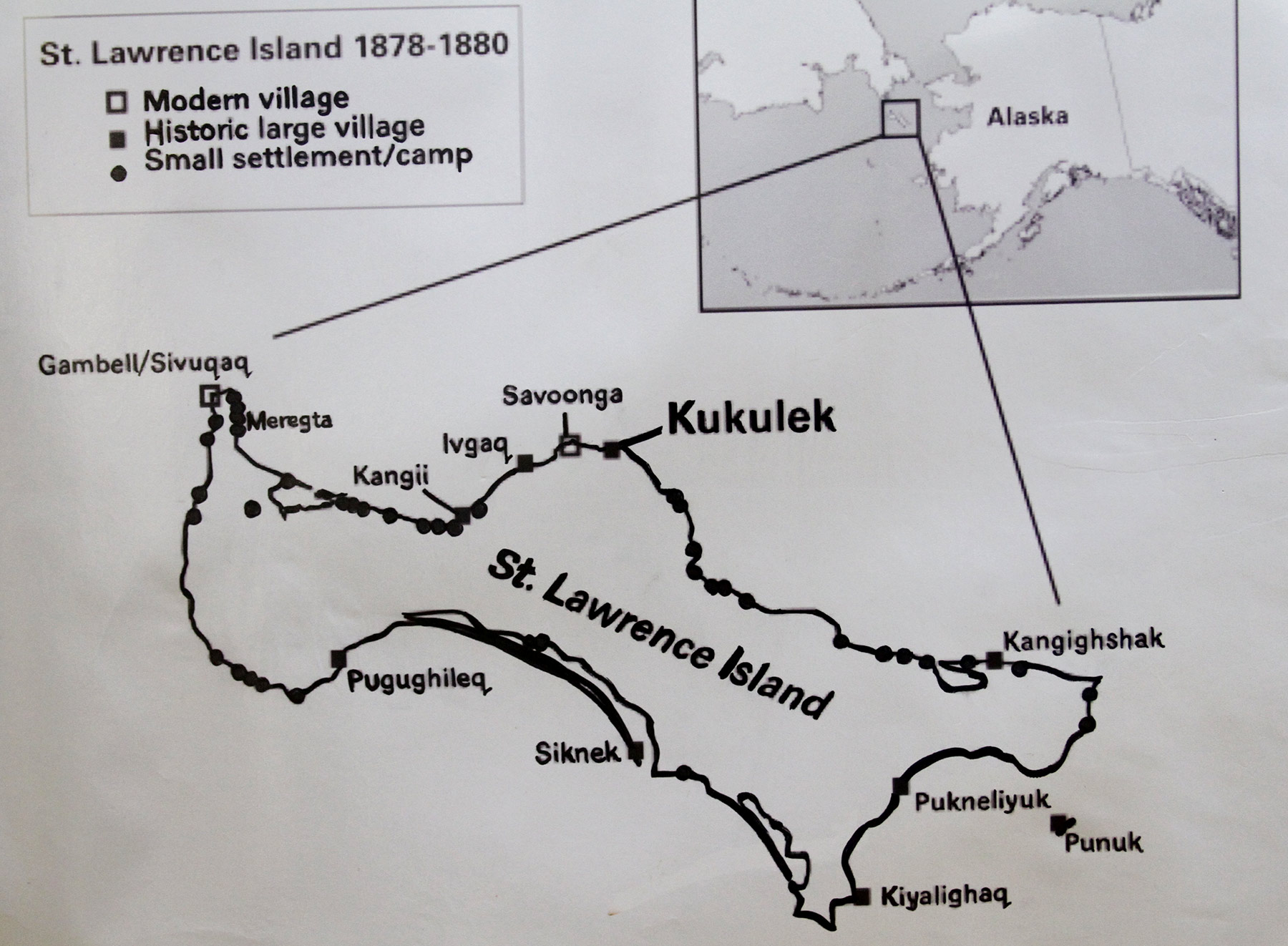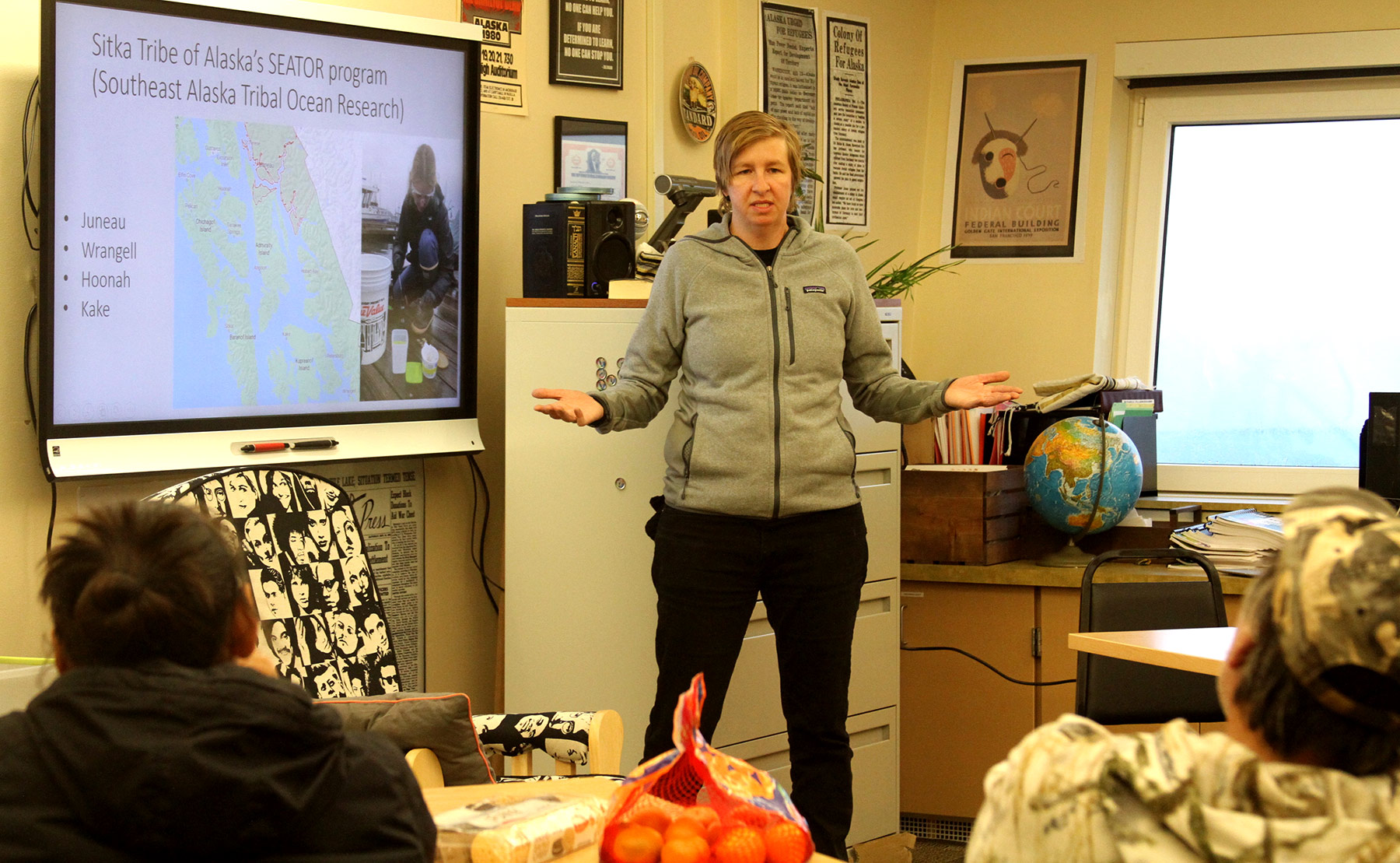
UAF scientist Amanda Kelley discusses factors that influence changes in ocean pH with students on St. Lawrence Island. Photo: Yuri Built-Ito
A team from University of Alaska Fairbanks recently visited Gambell and Savoonga, two villages on St. Lawrence Island, to conduct hands-on ocean acidification lessons with K-12 students and discuss ocean change with community members. The team was comprised of Yuri Bult-Ito, the lead curriculum developer with K-12 Outreach at the UAF College of Natural Science and Mathematics, and Amanda Kelley, an assistant professor of marine biology at UAF’s College of Fisheries and Ocean Sciences and a researcher with the UAF Ocean Acidification Research Center.
One hundred students in Gambell and 70 students in Savoonga took part in the lessons. The older students learned about the process of ocean acidification and its consequences to marine life, and identified the factors that influence changes in ocean pH. Younger students identified marine organisms found in Alaska and other parts of the world and learned about their behaviors and environment.

Savoonga beach in September. Photo: Yuri Bult-Ito
“It was great to see the excitement of the students doing hands-on activities,” Kelley said. “The students were willing participants.”
Bult-Ito also gave a presentation to high school students and discussed STEM (Science, Technology, Engineering and Math) and education programs they can explore while in high school and potential STEM and education programs they can participate in when they go to college.
“It was nice for the students to work with a scientist like Amanda in person, while I was encouraging them to consider pursuing science and education further,” Bult-Ito said.

A map of St. Lawrence Island shows Gambell and Savoonga as well as the large villages and small camps that existed between 1878-1880.
The ocean acidification activities were developed by Kelley, and the site visit was initiated through the REACH Up program (Raising Educational Achievement through Cultural Heritage). The program seeks to provide Native students and their teachers with accurate, culturally relevant science curriculum, that improves student achievement on STEM assessments, and trains Native youth to propose solutions to local climate change problems.
In addition to the school visits, a community meeting was held in both villages. Kelley gave a presentation on ocean change and potential threats the communities face with respect to climate change, and community members joined to share their observations and concerns about the change of the environment.

Community members share their observations and concerns about the changes in the environment during a community meeting. Photo: Yuri Bult-Ito
Funding for this trip was provided by the Alaska Ocean Acidification Network. If you are interested in an ocean acidification scientist visiting your community, contact Darcy Dugan, dugan@aoos.org.
